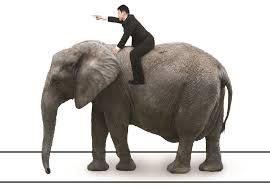Having multiple sex partners is common enough. But what about love?
This was a question discussed at a social gathering; an intellectual group. Earlier we’d discussed whether love is a “choice.” The consensus was pretty much in the negative; that it’s just something that happens, outside of one’s control.

Well, we do make choices. But the real issue is how we make them. A powerful metaphor is Jonathan Haidt’s in his book The Righteous Mind — the conscious mind as the rider on an elephant, which represents the unconscious. The rider thinks they’re in charge, directing the elephant. But mostly it’s the elephant going where it wants, with the rider making up rationales for why they’re going there.
That applies to falling in love. Yes, it’s a choice, but an elephant choice. Your conscious, thinking, rational mind is along for the ride. You do have reasons for falling in love with someone, maybe even ones you can articulate. Yet the true reasons operate at an unconscious level, deep in your psyche. The two sets of reasons may coincide, to at least some degree. But we shouldn’t imagine really understanding what’s going on.

So what about simultaneously loving more than one person, in that way? (Loving parents or children, etc., is a different thing.) In a romantic love relationship, exclusive fidelity is a cornerstone concept, with infidelity seen as incompatible. This is a sociological, cultural idea, powerful enough to influence our elephants. Yet our elephants may still harbor other ideas too. Judging from how humans actually behave.
This is crucially shaped by evolution. The only thing nature cares about is reproduction — producing offspring, and getting them to adulthood to reproduce again. That accounts for all our sexual feelings. Embedded deep in our genes.
And fidelity is an element here. Women are programmed to want male partners who’ll stick around to protect and help raise the kids. And the male wants the female to be faithful so he knows the kids he’s expending resources on are really his. These imperatives are a very big deal, evolutionarily.

Indeed, our group discussion noted male animals sometimes killing their mates’ offspring sired by a different partner. Even among humans, how often we read of the “boyfriend” mistreating or even killing a woman’s child by a previous guy. That’s evolution driving him. That boyfriend (his genetically shaped elephant) wants to perpetuate his own genes, not to invest work in someone else’s.
All that said, however, it’s far from the whole story. The male is also programmed to spread his sperm around as widely as possible, to increase the chances for his genes to appear in the next generation. Some readers may have noticed how this factor manifests in human behavior.
The calculus for a female differs since she’s strictly limited in numbers of offspring. Thus she must make each one count — birthing the healthiest children, most apt to reach adulthood. That’s why she too has a roving eye. Her mate may be nice enough, but some other male may attract her as likelier to give her a better baby. Also, her mate may be shooting blanks. Sex with additional men makes getting pregnant more likely.
So while we do have some cultural and evolutionary drivers for exclusivity in love, we also have genetic drivers for playing the field. At any rate, certainly our elephants are not programmed to rule out multiple simultaneous loves.

And meantime there’s a lot of psychology in play, wholly apart from our evolutionary and cultural programming. To name just one factor: ego. That’s why we talk of romantic “conquests.” In sum, the elephant may be perfectly capable, even desirous, of multiplicity in love. If one is good, mightn’t two (or more) seem better?
Stated another way: the heart wants what it wants. And it may want more than one.
